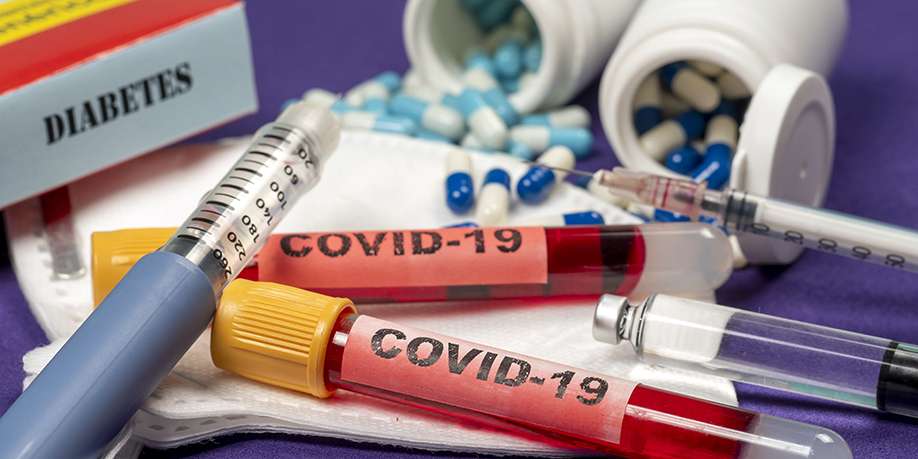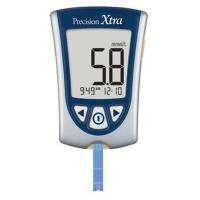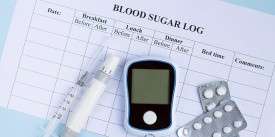
How does Coronavirus (COVID-19) affect People with Diabetes?How does Coronavirus (COVID-19) affect People with Diabetes?
  © Celso Pupo Rodrigues | Dreamstime.com COVID-19 (coronavirus disease) intruded our lives in early 2020 and has changed the world as we know it since then. This highly contagious infectious disease, which is caused by a virus called SARS-CoV-2, took the lives of over 800,000 people and infected more than 50 million people just in the United States alone. About half of those infected have not fully recovered, having experiencing multiple lingering symptoms – a so-called “long COVID”. Coronavirus spreads by tiny liquid particles ranging from small aerosols to larger respiratory droplets that come out of an infected person’s nose and mouth when the person sneezes, coughs, breathes, and speaks. Some of the most common symptoms of COVID-19 are difficulty breathing (shortness of breath), loss of taste or smell, fever, sore throat, cough, muscle ache or body ache, nausea or vomiting, diarrhea, fatigue, runny nose, and headache. Majority of people who get infected with COVID-19 either don’t have any symptoms or experience mild to moderate respiratory illness and recover relatively quickly without requiring special medical intervention. However, some people get very seriously ill and need medical attention. In critical cases, COVID can cause respiratory failure, heart and lung damage, kidney failure, and death. Most often, people who develop severe symptoms have underlying medical conditions. One of such conditions is diabetes. Multiple studies showed that diabetes is a major contributor to severe COVID-19 illness that has a devastating effect on people with diabetes. Among people who were hospitalized with severe COVID-19 and required ICU admission, 30 to 40% had Type-1 or Type-2 diabetes, while mortality of hospitalized diabetic patients with COVID-19 is around 25%. Although people with diabetes are not more prone to COVID-19 than people without the disease, the risk for them to suffer from a severe COVID-19 condition or to succumb to COVID-19 is over 200% higher than for people who don’t have diabetes. That makes diabetes – a condition that affects more than 10% of American population – one of the major risk factors for severe COVID-19 illness. There could be a number of reasons why COVID-19 so dramatically affects people with diabetes. Diabetes is an inflammatory disease. Plus, it makes people more prone to infections. As a result, COVID-19 can cause inflammation in the body of a diabetic patient much quicker and to a much higher extend than it can cause in the body of a healthy person. People with diabetes are also more prone to circulation issues. COVID-19, in its turn, causes blood clotting problems. These two issues combined together may result in a very serious situation very quickly. Besides, people with diabetes who are suffering from COVID-19 have a higher risk of such diabetic complication as diabetic ketoacidosis (DKA), which is a life-threatening condition. It occurs when your body has insufficient amount of insulin to let blood sugar into your cells to be used for energy. Instead, your liver breaks down fat for fuel. This process produces acids named ketones, which can cause a number of serious issues in the body. Besides, COVID-19 patients have a very dangerous body response to sepsis. While this can be treated by maintaining body fluids and correcting the electrolyte balance, diabetic ketoacidosis also causes electrolyte imbalance, making it extremely difficult to manage sepsis.
| |||||||||||||||||||||||||




























